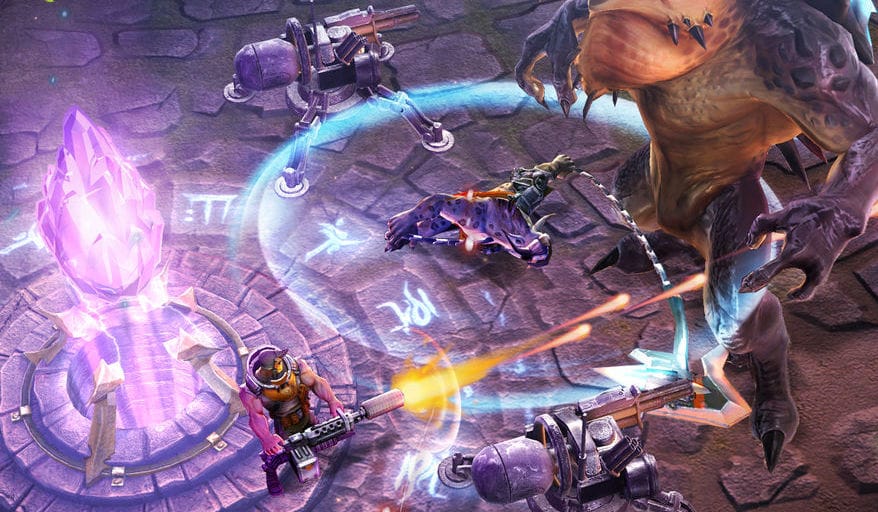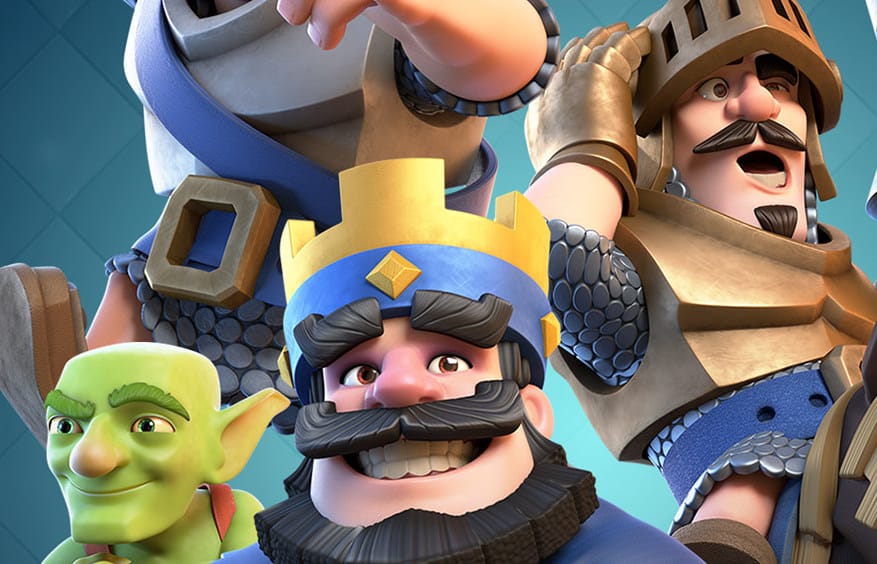Why the future of esports is mobile

This article is part of a collaboration with iQ by Intel.
Popular new mobile titles like Vainglory (2014) and Clash Royale show the promise of competitive esports on the go. While esports competitions continue to emphasize PC games like League of Legends (2009), new titles available on mobile devices are shaking things up for players and fans. According to a report released last year by the NPD Group, younger kids are playing games on their phones more than any other device. Game studios have taken note, creating mobile games that appeal to core and casual players alike. “Somebody’s going to create [these multiplayer competitive games] for the touchscreen generation,” said Kristian Segerstrale, COO and Executive Director of Super Evil Megacorp, the studio behind Vainglory, a mobile multiplayer online battle arena game.
Segerstrale said Blizzard Entertainment, Riot Games and Valve showed they can grow big communities of PC players, and mobile devices could be next. To get there, Segerstrale believes mobile designers need to appeal to a traditional PC audience while remaining approachable to the more general smartphone audience. When Vainglory was first unveiled in 2014, for example, a guild for competitive mobile gamers didn’t exist yet. Designed for mobile platforms, Vainglory is a simplified version of PC games that pit teams against one another in battle.

A little more than a year later, the Vainglory guild organization “Gankstars” is forging this new on-the-go arena. According to the team, what started as a casual guild to help friends play games together quickly blossomed into a household name in the small but rapidly growing world of competitive Vainglory. The members of team Sirius, part of the Gankstars guild, ranked as world champions after winning the first-ever Vainglory International Premier League in South Korea last year. Their success not only speaks to the growing popularity of all different kinds of esports, but also the promise of esports on such ubiquitous platforms as iOS and Android. It also helps that the game is accessible to a variety of audiences, which Segerstrale stressed, can be difficult. “Being respectful of the very casual player as much as we are respectful of the core player will be a big challenge,” she said. “The companies that will truly create the stand out product and experience over the next five to 10 years on touchscreens will be able to do that well.”
While Vainglory aims to ingratiate PC players, Supercell’s recently released Clash Royale hopes to be the one to bring esports to the “anyone with a phone” demographic. A strategy game from the makers of hugely popular Clash of Clans (2012), Clash Royale combines the collectible card game with tower defense mechanics. It’s already brought in close to $110 million since it was released in early March. “It has everything it needs to be a really popular competitive game,” said Marcus Graham, Director of Programming at Twitch. “World of Warcraft (2004), League of Legends, these are games that at their core had millions and millions of people playing the game,” Graham said, noting that this gives popular games a leg up on the competition. “If you have 10 million players and you say you’re doing a tournament for the game, it’s easy to be a success even if you only get one percent of those players involved.”
Mobile games offer built-in simplicity
Graham and others believe mobile esports could outsize existing PC esports communities. The free-to-play model has worked well for esports in the past. “Free-to-play battle arena games like League of Legends are where the trend is,” said George Woo, events organizer at Intel and the man behind Intel Extreme Masters. “Games with free distribution probably have the most leg for being successful in esports because there’s a larger population of people playing it.”
Mobile games offer built-in simplicity, such as eliminating the need for external controllers, which can bode well for streaming, according to Koh Kim, co-head of business development at Mobcrush. Mobcrush, a mobile streaming app that sponsors Gankstars, requires little setup compared to its counterparts on PC. “In the PC realm, the user interface itself is really complicated,” said Kim. By catering to a mobile-centric audience, Mobcrush aims to introduce game streaming to a larger, more diverse audience. “People who probably have never streamed before, [lacking] the means or the technical know-how, now have the ability to engage with other users in real-time,” said Kim.

Perhaps the biggest perk to mobile esports is that the gameplay is intuitive for the smartphone generation. Alex ‘PwntByUkrainian’ Novosad, co-founder and manager of Gankstars, said playing games with a touchscreen “just feels natural.” Twitch’s Graham said that the growth of esports on mobile has the potential to transform existing PC games. “Eventually we’re going to have our League of Legends for mobile,” he said. “We’re going have a game that’s played worldwide, where you can speak a language completely different from someone else, but [the game is] the language you speak together.”



